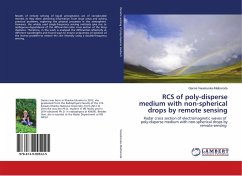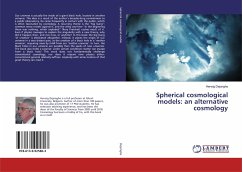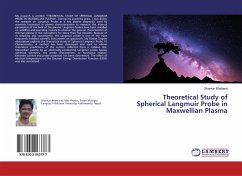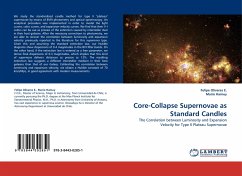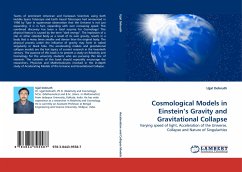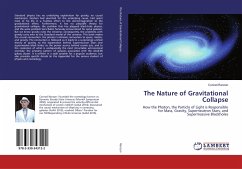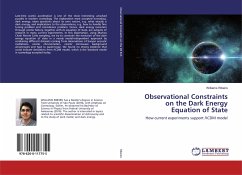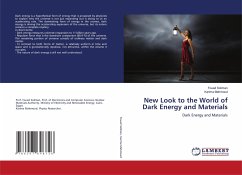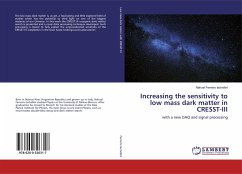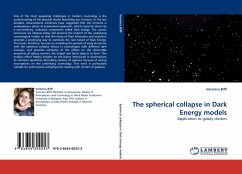
The spherical collapse in Dark Energy models
Application to galaxy clusters
Versandkostenfrei!
Versandfertig in 6-10 Tagen
39,99 €
inkl. MwSt.

PAYBACK Punkte
20 °P sammeln!
One of the most appealing challenges in modern cosmology is the understanding of the physical model describing our Universe. In the last decades, observational evidences have suggested that the Universe is undergoing a phase of accelerated expansion, which could be driven by a non-ordinary, unknown component called Dark Energy. The cosmic structures we observe today still preserve the imprint of the underlying cosmological model, so that the study of their formation and evolution provides a promising way to constrain the real nature of Dark Energy. This book, therefore, focuses on modeling the...
One of the most appealing challenges in modern cosmology is the understanding of the physical model describing our Universe. In the last decades, observational evidences have suggested that the Universe is undergoing a phase of accelerated expansion, which could be driven by a non-ordinary, unknown component called Dark Energy. The cosmic structures we observe today still preserve the imprint of the underlying cosmological model, so that the study of their formation and evolution provides a promising way to constrain the real nature of Dark Energy. This book, therefore, focuses on modeling the growth of early structures with the spherical collapse theory in cosmologies with different dark energies, and provides estimates of the effects on the observable properties of galaxy clusters, the largest and latest objects to form. This analysis offers helpful insights on the biases introduced in observations of common quantities describing clusters of galaxies because of wrong assumptions on the underlying cosmology. This work is particularly suitable for professional astrophysicists dealing with clusters of galaxies.



